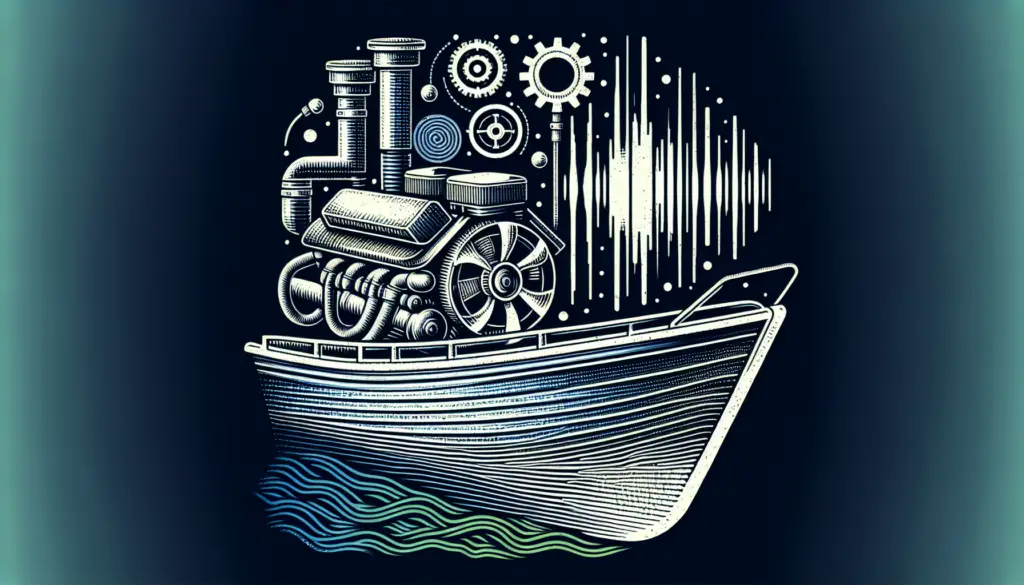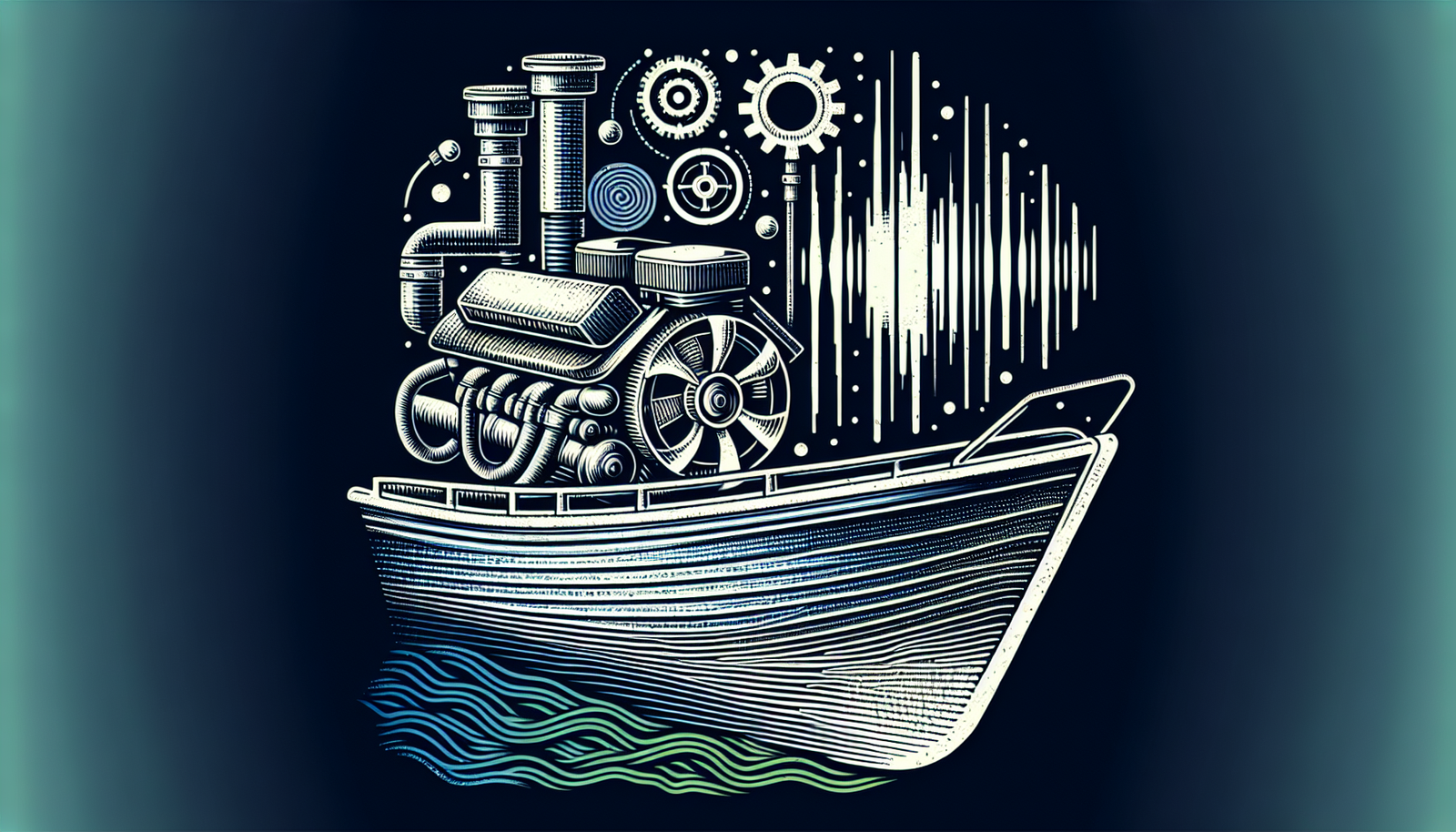You might be surprised to learn that the roar of boat engines isn’t just an annoyance, it can actually have serious implications for your well-being. “The Impact of Boat Engine Noise on Human Health” uncovers the astounding link between persistent exposure to this type of noise pollution and an array of health issues. Packed with expert insights, the article reveals how the non-stop drone of boat engines not only disrupts serenity, but can also contribute to cardiovascular disease and hearing loss. A must-read for anyone who lives near waterways or enjoys maritime activities, this piece promises valuable knowledge on safeguarding your health from this unexpected danger.

The Nature of Boat Engine Noise
Boating is a favorite pastime for many. Yet, the harmonious sound of lapping waves and seagulls can often be punctuated by the less pleasant noise of boat engines.
Understanding the Concept of Boat Engine Noise
Just like any motorized vehicle, boat engines produce noise as they operate. This noise is a byproduct of the mechanical operation and propulsion of the boat. It varies greatly depending on the type of engine, the boat’s size, and the speed at which it’s traveling.
The Frequency and Intensity of Boat Engine Noises
The frequency of boat engine noise relates to how often the sound wave repeats itself, creating a sound’s pitch. Higher revs per minute (RPM) produce higher frequency noise. The intensity, or loudness, of the sound is often measured in decibels (dB). The larger and more powerful the engine, the more noise it’s likely to produce.
The Human Auditory System
As we delve into how boat engine noise affects humans, let’s first touch on how your ears process sound.
Structure and Functionality of the Human Ear
Your ear is made up of three parts: the outer ear, the middle ear, and the inner ear. Sound waves enter the outer ear and travel through the ear canal where they hit the eardrum. This causes the eardrum to vibrate, transferring the sound vibrations to the tiny bones inside your middle ear. These bones amplify the vibrations and push them into the fluid-filled cochlea in the inner ear. Here, sensory cells transform the vibrations into electrical signals that your brain interprets as sound.
Identification of Different Noise Levels by the Human Ear
The sensitivity of the human ear allows us to differentiate a broad range of noise levels. The softest sound we can hear is 0 dB, while conversational speech usually registers at around 60 dB. Noise levels above 85 dB are considered harmful with prolonged exposure.
How Noise Affects the Human Body
Noise isn’t just annoying, it can also have a physiological impact on your body.
Noise as a Stressor
Excessive noise can trigger your body’s stress response. This can lead to an increase in heart rate and blood pressure, as well as the release of stress hormones. Even if you’re not consciously bothered by the noise, your body can still perceive it as a threat.
The Body’s Physical Reaction to Noise
When noise triggers your body’s stress response, it causes your adrenal glands to release a rush of hormones like adrenaline and cortisol. This “fight or flight” response prepares your body to react to danger, causing physical changes like an accelerated heart rate, quickened breathing, and tense muscles.
Long-term Effects of Constant Noise Exposure
Chronic noise exposure can lead to long-term health issues. Studies suggest prolonged exposure to high noise levels can result in hearing loss, sleep disturbances, and cardiovascular issues. It may also contribute to mental health problems like anxiety and depression.
Specific Health Effects of Boat Engine Noise
The health impact of boat engine noise isn’t trivial and warrants closer examination.
Impact on Hearing Abilities
Constant exposure to loud boat engine noise can damage the delicate structures inside your ear, leading to noise-induced hearing loss. This type of hearing loss is often gradual, so you might not notice it until it’s become significant.
Sleep Disturbances Caused by Engine Noise
Engine noise can also disrupt sleep, especially if you live near a busy marina or harbor. Good sleep is crucial for overall health, and persistent disturbances can lead to problems like insomnia, decreased cognitive function, and increased risk of heart disease.
Effects on Mental Health
Living near constant engine noise can affect your mental health as well. It can lead to increased levels of stress, anxiety, and depression, impacting your daily quality of life.
Cardiovascular Issues Associated with Noise
Consistent noise exposure has been linked to higher rates of hypertension, heart disease, and stroke. The stress response triggered by noise can result in higher blood pressure and heart rate, which over time can increase your risk for these conditions.

Comparing Boat Engine Noise to Other Noise Sources
How does boat engine noise stack up against other noise sources?
Boat Engine Noise vs. Road Traffic Noise
Engine noise from boats can be very loud, but it often does not quite reach the levels produced by heavily congested road traffic. However, because water carries sound more efficiently than air, boat noise can travel longer distances and affect a wider area.
Boat Engine Noise vs. Aircraft Noise
Aircraft noise is often more intense than boat engine noise but occurs less frequently. If you live near an airport, you’re exposed to periods of very loud noise intermingled with periods of relative quiet. In contrast, people living near busy waterways may be subjected to the consistent hum of boat engines.
Noise Levels in Different Settings
The level of noise you experience from boat engines will depend greatly on where you live and work. If you’re waterside in a bustling city, you’ll contend with noise from a multitude of sources, boat engines among them. Those living or working near busy marinas or harbors will be more heavily impacted.
Understanding Noise Regulations in Maritime Environments
Laws around noise pollution in marine settings differ depending on the jurisdiction.
Existing Noise Pollution Laws Specific to Maritime
In many places, there are regulations aimed at controlling boat noise. These laws attempt to limit the impact of boat engine noise on both humans and marine wildlife.
Enforcement and Compliance Issues
Enforcing these regulations isn’t easy. Monitoring noise levels, identifying offenders, and bringing them into compliance can be challenging, particularly in busy waterways. This puts the effectiveness of these laws under scrutiny.
Potential for New Noise Regulations
Given the growing body of evidence connecting noise pollution to health issues, there may be a need for stricter regulations in the future.
Reducing the Impact of Boat Engine Noise
So, what can be done to mitigate the effect of boat engine noise?
Noise Reduction Techniques in Engine Design
Manufacturers can design engines that are quieter and less disruptive. We’re seeing more innovation in motor design, with companies developing quieter engines as well as hybrid and electric alternatives.
Use of Noise Barriers and Absorbents
Strategic placement of noise barriers and absorbents can also help. These methods are most effective in enclosed areas like marinas and can significantly reduce noise pollution.
Personal Protective Equipment
Wearing ear protection can be an effective way to reduce noise exposure, particularly for those working in the marine industry.
Case Studies of Boat Engine Noise Impact
There are many examples of how boat engine noise has affected individuals and communities.
Residential Areas near Marinas and Harbors
People living near marinas and harbors deal with boat engine noise on a daily basis. This constant exposure can lead to sleep disturbances, hearing loss, and other health issues previously mentioned.
Long-term Effects on Individuals Living near Water Bodies
Studies have connected long-term exposure to boat noise with negative mental and physical health effects. Many people living near water bodies have reported issues like stress, anxiety, and cardiovascular problems.
Impact on Workers in the Marine Industry
Those working in the marine industry can be at high risk for noise-induced hearing loss. Constant exposure to loud engines without proper protective equipment can have serious long-term effects on hearing.
The Socio-Economic Impact of Boat Engine Noise
Boat engine noise doesn’t just affect individuals—it also has broader socio-economic implications.
Cost of Health Problems Associated with Boat Engine Noise
Medical expenses from treating health conditions caused by noise pollution can add up, placing a significant burden on healthcare systems. Preventive measures and education could help reduce these costs.
Impact on Property Values near Marinas and Harbors
Noise pollution could potentially lower property values in areas near busy waterways. Prospective homebuyers may be less inclined to buy a house that comes with the constant drone of boat engines.
Considerations for Tourism Industries near Water Bodies
Tourist locations near water bodies might suffer too. Visitors, seeking relaxation and peace, may be turned off by areas with high levels of boat engine noise.
Future Perspectives on Boat Engine Noise and Human Health
Looking forward, there are several promising developments in the fight against noise pollution.
Technological Advances for Quieter Boat Engines
Technological advancements can go a long way in reducing noise pollution from boats. Manufacturers are already working on new designs and materials that can decrease engine noise, and the rise of electric boats provides another quiet alternative.
Potential Changes in Regulations and Standards
With rising awareness about the health risks of boat engine noise, we might see the implementation of stricter standards and regulations to control noise pollution in maritime environments.
Increasing Awareness of Noise Pollution and its Health Effects
Education plays a vital role in combating noise pollution. As people become more aware of the health risks associated with boat engine noise, they might be more inclined to support measures to mitigate its impact.
In conclusion, while boat engine noise is a prevalent issue, it is not insurmountable. Through innovation, regulation, and education, we can work towards a future where the tranquility of life by the water is disturbed not by the roar of engines, but only by the call of the lively seagulls above.

